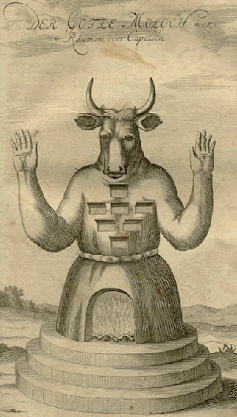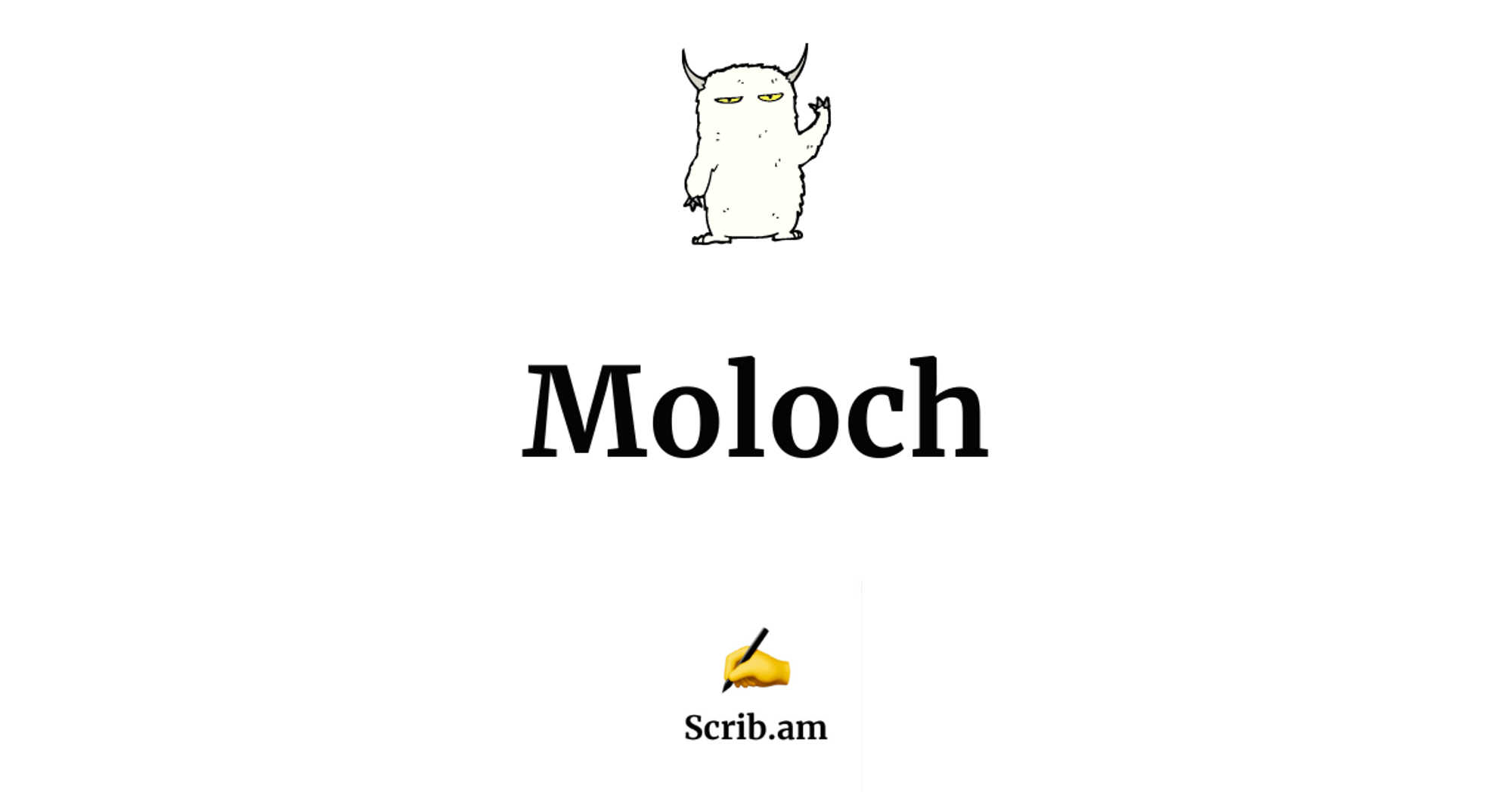I first heard about Moloch while listening to the interview of Liv Boeree by Lex Fridman (August 2022).
What is the origin of Moloch?
Moloch is a term which appears multiple times in the Bible as a reference to despicable sacrifices, including the use of children as offerings.
Moloch is not necessarily a deity (even if there are still arguments on this point) but rather a shared belief, an ideology, not necessarily incarnated.
The usage has evolved to depict something which demands a very costly sacrifice, very often against all logic except the blind pursuit of a perverted ambition.
The victims of Moloch are trapped in a state of masterless servitude.

What is the meaning of Moloch in today’s society?
The Moloch curse - a dictatorless dystopia - is described at great length in a monumental blog post by Scott Alexander published in July 2014: Meditations on Moloch.
Moloch wins when we all abide by the rules of cut-throat competition, following a dumb but established set of self-imposed rules, in a constant race to the bottom, which is unfortunately the path of least resistance usually taken in the evolution race for survival.
Moloch feeds itself from a deadly paradox: supposedly protective instincts can lead us to mass extinction. Sheer competition can ultimately annihilate all forms of activity.
.jpg?table=block&id=ce1a9d2b-a272-451a-a3d9-d9f7b4c4eeb7&cache=v2)
In Scott Alexander’s piece, Moloch is presented as the best way to describe the evolution of our societies, where everyone can or could agree on the stupidity of our collective behaviour but no one dares to take any concrete action to change course, in the absence of strong coordination, as if we were all trapped into the system.
From the outside, the stupidity is obvious, from the inside, it looks like a fatality.
Here’s how the author applies the Moloch concept to the arms race:
From a god’s-eye-view, the best solution is world peace and no country having an army at all. From within the system, no country can unilaterally enforce that, so their best option is to keep on throwing their money into missiles that lie in silos unused.
And he concludes:
Once one agent learns how to become more competitive by sacrificing a common value, all its competitors must also sacrifice that value or be outcompeted and replaced by the less scrupulous.
Following the path of least resistance, like a river, we’re going downhill, except that there’s no ocean at the end of the journey, just a cliff falling into the abyss.
Instead of sacrificing our values for a false sense of security stimulated by an addiction on dopamine shots, it would be wiser to make moderate sacrifices for the greater good (aligned with the Cathedral Thinking addressed in another article). In the end, you feel better when you’re surrounded by people who feel good.
Since proper reflection takes time, it might be smart to slow things down and take a pause to reassess the way we approach competition.
Liv Boeree, in her discussion with Lex Fridman, suggested to develop a win-win game theory instead of the usual zero-sum-game (aka ”winner takes it all”) which happens to rule most of our competitive systems (Liv used to be an expert in zero-sum-games in her poker days).
Here’s a great definition from Tricia Christensen on WiseGeek:
A win-win situation, also called a win-win game or non-zero-sum game in game theory, is a situation by which cooperation, compromise, or group participation leads to all participants benefiting.
Moloch in popular culture
Moloch is featured in the poem “Howl” by Alan Ginsberg, published in 1956, as a metaphor for industrial civilization and debilitating American consumerism.
In Metropolis (Fritz Lang, 1927), the factory is presented as a sacrificial temple to Moloch.
Even if not mentioned per se, we can argue that Idiocracy (2006) is a very post-Molochian tale.
See how Moloch (The God of Unhealthy Competition) is at play on social media, helped by the power of polarizing algorithms (video from Liv Boeree’s Youtube channel)

